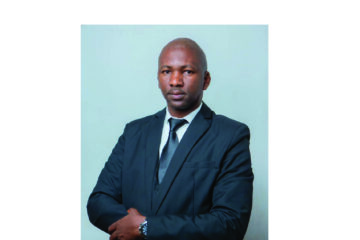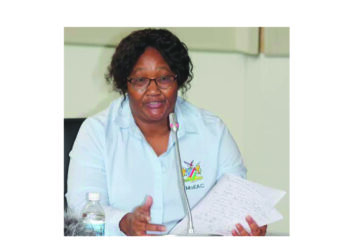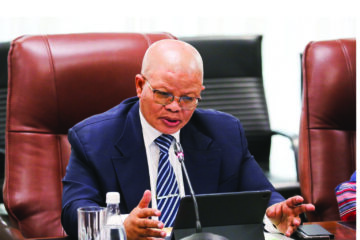Stefanus Nashama
Popular Democratic Movement (PDM) lawmaker Inna Hengari said the prohibition of political activities at the University of Namibia (Unam) campuses is unconstitutional and against the statutes and regulations of the university.
Hengari made these remarks in the National Assembly on Wednesday while questioning the Minister of Higher Education, Training and Innovation, Dr Itah Kandjii-Murangi in Parliament.
Herangi asked the minister to tell the assembly if the decision was lawful.
“How does the University of Namibia reconcile the directives restricting political activities on campus with the constitutional guarantees of freedom of speech, expression, assembly, and association as enshrined in Article 21 of the Namibian constitution?” she asked the minister.
Hengari’s criticism comes after Ellen Namhila, the Pro-Vice-Chancellor for Finance, Administration, and Resource Mobilisation at the university, issued a notice banning political activities on all the campuses in April.
Namhila also instructed the implementation of proactive measures to prevent the use of facilities and venues for political campaigns, recruitment, or other activities.
The directives prevented the Affirmative Reposition Student Command (ARSC) from organising an event on campus.
Hengari scrutinised the directives, maintaining that they violated Article 21 of the Namibian constitution.
She emphasised that although a parliamentary act established the university, its functions and operations must adhere to its statutes, regulations, and the Namibian constitution.
Hengari, a former vice president of the Student Representative Council (SRC) at Unam, highlighted UNAM’s Act 18 of 1992, which mandates the university to provide higher education, conduct research, advance and disseminate knowledge, offer extension services, encourage cultural expression, further training and continuing education, contribute to Namibia’s social and economic development, and foster relationships with other entities.
She further requested the minister explain how the university ensures that the directives comply with the constitution.
Hengari also sought a response from the minister about how the university will uphold its responsibility to provide an environment that fosters academic freedom and critical discourse while remaining neutral in political matters and not restricting or limiting political activities on campus.
“What consultations were undertaken by the University of Namibia before issuing directives regarding restricting political activities on campus? Upon reflecting on these illegal and unconstitutional directives, when will the management withdraw them?” she asked.
Hengari asserted that the university’s implementation of such directives and policies would deprive students and staff members of the rights taught in lecture halls and only consider them necessary during elections.
She suggested that the university should aim to educate and empower young people to assert their fundamental rights, questioning whether the institution is cynically shaping them into compliant voting pawns.
The university’s ban on political activities on tertiary education campuses has also been questioned by the Landless People’s Movement student organisation and the Namibia National Students Organisation (Nanso), who also labelled it unlawful.
The minister is scheduled to address questions on this matter in the National Assembly on 13 June.




